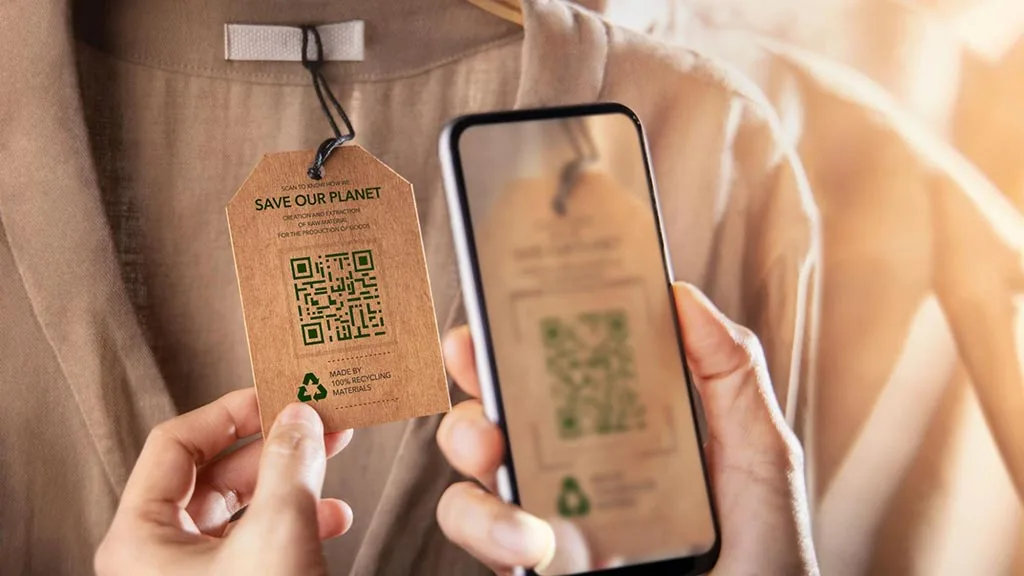The biggest digital marketing trends of 2024 for agencies
Digital marketing is a rapidly evolving field, so digital marketing agencies need to continuously adapt. New trends emerge each year, and with them come new opportunities to reach your clients’ ideal customers. While tried-and-tested digital marketing strategies—like content, social media, and email marketing—continue to help clients expand their reach, emerging technologies are changing how we use these channels.

Consumer behavior is also evolving, and it’s more important than ever to connect with your clients’ audience by adopting the media formats they love and communicating about the issues that matter to them.
Understanding how the digital marketing landscape is changing can help you improve your clients’ reach and keep them ahead of their competition. These are the top digital marketing trends agencies will see in 2024.
9 essential digital marketing trends in 2024
Artificial intelligence, augmented reality, video content, data privacy, value-based shopping, and social commerce are all affecting the way customers discover new products, build relationships with brands, and make purchasing decisions. Here’s an in-depth look at these emerging trends and how they’ll affect your client accounts.
1. AI tools are reshaping the digital marketing landscape

2023 may go down in history as the year of artificial intelligence. Google released Bard. Microsoft released Copilot. And OpenAI released GPT-4, which most experts agree featured major advancements over ChatGPT’s earlier language models.
Last year, digital marketing agencies embraced AI-powered tools and chatbots, finding uses for them across their marketing processes.
Generative AI can create content for blog posts, emails, and social media posts—speeding up the content marketing process. Automation helps marketers send customers the correct communication at the correct time in their customer journey. And machine learning algorithms can perform data analysis and provide data-driven insights into consumer behavior, especially as customers interact with your clients’ websites, emails, and more.
Artificial intelligence is especially helpful for smaller digital marketing agencies. According to the State of AI in Digital Marketing Report from Invoca, 52% of executives at smaller companies believe they are AI experts, and most marketing teams (86%) say they plan to increase their investment in AI in 2024. That number was higher among small businesses than large.
AI is likely to become even more entwined with marketing strategies in 2024 as multiple social media platforms—including Instagram, Facebook, and TikTok—have integrated AI-powered search features. Yelp also recently launched a new AI assistant that helps guide users through the process of hiring the right service professional for a job through the platform. Staying up-to-date on AI technologies might be a key differentiator that sets the most successful digital marketing agencies apart from their competition.
AI is probably already affecting your SEO efforts due to chatbots integrated into search engines. As it evolves, AI could provide additional opportunities to optimize your clients’ marketing campaigns, such as the opportunity to add pay-per-click (PPC) advertisements into chatbot responses—but it could also come with some drawbacks.
AI features are being integrated into Google Ads, which could give agencies less control over their clients’ advertisements or require agencies to more closely monitor how AI is affecting clients’ ad appearance, messaging, and reach.
AI also appears on sites like Amazon, where it’s able to summarize customer reviews. This may affect a product’s social proof, potentially driving sales up or down.
2. Virtual and augmented reality are creating unique customer experiences

Virtual reality (VR) and augmented reality (AR) are reshaping user experience and helping drive more sales, especially for clients in e-commerce. These interactive technologies allow visitors to clients’ websites to use their computer or smartphone cameras to try on wearable products—like clothes, glasses, and makeup—and to see products like furniture and decor in their homes.
Using AR marketing tools can help your clients stand out from their competition by providing an immersive experience for online shoppers—similar to an in-person experience. These initiatives can help clients in industries beyond e-commerce as well.
VR can allow potential customers to tour event venues and restaurants before making reservations. It can show customers 3-D renders and allow them to test products in virtual environments. Customers can also take screenshots of their augmented reality experience to create user-generated content for your other clients.
In one case study, Shopify found that website visitors were 65% more likely to place an order after they interacted with it in AR. In another case study, the company saw a 40% boost in conversion rates when they uploaded 3D models and AR to product pages.
The marketing use cases for AR will only grow as more virtual reality devices make it into consumer households. Grandview Research expects the VR market size to expand by 27.5% over the next seven years. This growth will give digital marketing agencies the opportunity to create more personalized experiences for their clients’ customers.
3. Video content is growing faster than any other type of content marketing

Video marketing has been growing year over year, and one of the most powerful things about this format is its ability to reach a wide range of demographics. According to a report by the Pew Research Center, 83% of adults in the U.S. use YouTube—that’s more than any other social platform. And usage rates are higher across every single age demographic. But YouTube isn’t the only marketing channel where you should consider using short-form video content to promote your clients’ products or services.
TikTok is one of the originators of short-form video and remains an important channel for reaching a Gen Z audience. Meta Reels on Instagram and Facebook and YouTube shorts were released as alternatives to TikTok. All of these platforms have become influential video marketing channels. Beyond social media marketing, video content is also making its way into Google Search Generative Engine answer boxes, so creating more video content could improve your clients’ SEO strategy in 2024 as well.
Short-form videos have the highest return on investment, and 30% of marketers who don’t currently make short-form video content plan to start in 2024, according to a survey by Wistia. But longer video content and webinars also have a place in your clients’ digital marketing strategies because they tend to have higher conversion rates.
Most marketers report that creating high-quality videos is less important than creating relevant content. Many consumers are willing to watch simple instructional and talking head videos, as long as they find the content useful. Many marketers report that they see the best return on investment when they share educational content and product demos in video format. Digital marketing agencies that don’t already offer video content may benefit from introducing this service.
4. Voice search optimization is impacting SEO rankings

Voice search may have started out small, with consumers asking Alexa or Siri to tell them about the weather or check how long their daily commute will take. But as digital voice assistants become more integrated into our digital world, more consumers are using these devices to interact with search engines.
According to research by PwC, 65% of consumers between the ages of 25 and 49 speak to their voice-activated devices at least once per day. They’re able to ask their smartphones, watches, and other mobile devices for answers to any question that comes up. Then those mobile devices retrieve search engine results to answer their questions. If your clients’ content marketing efforts aren’t optimized for voice search, it could hurt their SEO rankings.
Like AI, voice assistant technology is expected to keep improving, which could lead to longer search queries or personalized search engine results based on a consumer’s tone of voice. Digital marketing agencies can expect to see more conversational and longer tail keywords coming up in their SEO content strategy.
Beyond creating content to answer voice search queries, advertising on smart speakers could become a more important marketing channel in 2024 and beyond.
5. Brand values continue to drive consumers’ purchasing decisions

The majority of consumers prefer to shop with brands they feel share their values, and this is especially true among Millennial and Gen Z shoppers. These buyers are increasingly looking to purchase from brands with values that include inclusivity, sustainability, transparency, and authenticity.
For example, a survey by BlueYonder Media Center found that 70% of consumers say they’ve purchased from a brand that promotes its products as sustainable in the past six months, while 47% of consumers say their interest in shopping sustainably has increased over the last year. Sustainability was important across all age demographics, but it was especially important to Millennials and Gen Z.
You can build brand awareness for your clients and connect with their target audience by creating marketing campaigns with messaging that reflects their values. That being said, it’s essential to be authentic about what those values are. That same survey found that 35% of consumers are skeptical about brands’ sustainability claims. To build trust with consumers, it’s essential to be transparent about the steps your clients are taking to embody their brand values.
6. Data privacy concerns are affecting engagement rates
Taking steps to protect customers’ data privacy is another important way to build trust with consumers in 2024. While data security might seem like a job for an IT team rather than a digital marketing agency, breaches in data security can negatively impact your clients’ ability to collect the customer data you use to plan their marketing campaigns.
Therefore, marketing agencies should have a vested interest in staying up to date on data privacy policies and efforts to protect consumers. According to research by KPMG, 86% of consumers say data privacy is a growing concern, and 40% don’t trust companies to use their data ethically.
When it comes down to it, consumers aren’t willing to share their contact information or data with brands they don’t trust. And after a data breach, customers become even less willing to share information about themselves. So one of the best strategies to keep customers sharing their data with your clients is to encourage them to invest in data security.
Beyond that, sharing information about clients’ data privacy policy, data usage, and the steps they’re taking to protect customer data can help build trust with their target audience. The same survey by KPMG found that consumers in the U.S. responded more favorably to data collection when they were told exactly how their data would be used. Transparency can help your clients build stronger relationships with their customers.
7. Social media niches are getting even more niche

As the number of social media influencers expands, content creators have had to hone their niches, moving from broader topics to more specific ones. For example, instead of a general beauty influencer, you might see an influencer who focuses on eye makeup, another who only covers products for oily skin, and yet another who creates content about shoulder-length hairstyles.
These more specific niches are creating a new era of influencers-as-experts, and they’re changing the way digital marketing agencies approach influencer marketing. While these niche influencers may reach smaller audiences overall, those audiences are highly engaged. According to Forbes, one influencer saw her followers increase by over 800% when taking this hyperniche approach to content creation.
This opens the door for digital marketing agencies to create more thoughtfully curated partnerships with micro-influencers. Because influencers are engaging in very careful audience targeting, agencies can now partner with influencers whose target audience very closely aligns with their clients’.
For example, if a client is launching a new skin care product and you partner with a general beauty influencer, only a portion of that influencer’s audience will be interested in skin products. The rest may be following the influencer for tips on makeup or hair care. But if you partner with a micro-influencer who only covers skin care, that influencer’s entire audience will be made up of potential customers for your client.
And because micro-influencers often cost less to hire than influencers with a larger audience, your client could end up paying less for the campaign. As social media niches become more specific, your agency will be able to capitalize on better audience targeting.
8. Social commerce is driving more sales

Social media isn’t just a good marketing platform; it’s also directly responsible for a growing number of sales. Consumers use social media to discover new products through recommendations from influencers and advertisements from brands. After the discovery process, many use built-in shopping features to buy the products that interest them from within their social media feeds.
Social commerce sales are growing year over year with Instagram being the most popular platform. Twenty-eight percent of digital buyers use it to make purchases, according to a report by EMarketer. Facebook and TikTok are not far behind.
Gen Z shoppers are especially likely to purchase products on social media platforms. They account for more than half of the buyers using social media commerce. So for your clients hoping to reach a Gen Z audience, providing opportunities to shop from within social media platforms could be an essential path to sales growth.
For service-based industries, something akin to social commerce is happening on Yelp. Consumers are first researching service businesses and then reaching out to them directly through the platform. A study found that 90% of customers on Yelp are there to compare businesses. Furthermore, 83% will hire or buy from a business they found on Yelp, and 57% contact a business they found on Yelp within one day.
In short, this business platform can help your service-based clients reach high-intent customers, much like how social commerce platforms can help products find customers ready to buy.
9. Podcasts continue to reach larger audiences

The number of people listening to podcasts has grown continuously since the format first launched. And in 2024, that number is set to hit 43.1 million listeners, according to a forecast by EMarketer. This format is an excellent paid advertising opportunity for any digital marketing agencies that aren’t already using it.
Podcast advertisements are typically read aloud by the podcast’s host during the course of the show, which keeps production costs low for these ads. And because podcasts typically serve niche audiences and provide educational content, they allow your agency to form partnerships with creators whose niche closely overlaps with your clients’. It’s an excellent advertising strategy for clients looking to establish expertise within their niche.
Many podcast ads include discount codes that allow your agency to track the conversion rates of your clients’ advertisements. Research by EMarketer found that 44% of Gen Z listeners had used a discount code mentioned in a podcast. The platform is also effective for brand discovery with 61% of Gen Z listeners visiting a company’s website after hearing an advertisement for it on a podcast.
On trend and on target
Digital marketing trends can be a major opportunity for agencies looking to improve their clients’ reach. While some of the trends that will impact your agency in 2024 are from new and evolving technologies, early adopters will likely see big benefits.
Digital marketing teams that use augmented reality tools can increase their clients’ sales. Artificial intelligence can make your agency more efficient and provide unique data-driven insights to improve client account performance. And video content, podcasts, and social commerce all offer opportunities to reach more members of your clients’ target audience.
But there is one trend that never changes: Having a steady stream of new business is as essential in 2024 as it’s always been. Check out these six marketing agency lead generation strategies to help you win new prospects by leveraging your network and expertise.
Ready to become a Yelp Advertising Partner?
Contact us today to find out how Yelp advertising drives qualified leads for your clients.
